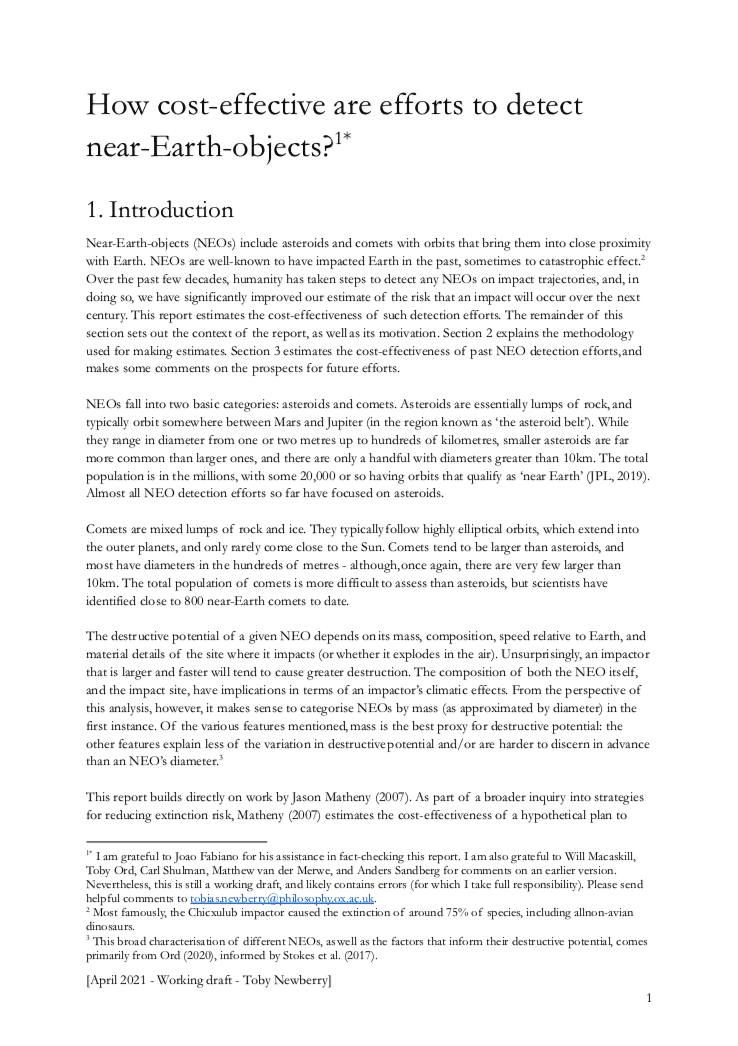How cost-effective are efforts to detect near-Earth-objects?
Toby Newberry (Future of Humanity Institute, University of Oxford)
GPI Technical Report No. T1-2021
Near-Earth-objects (NEOs) include asteroids and comets with orbits that bring them into close proximity with Earth. NEOs are well-known to have impacted Earth in the past, sometimes to catastrophic effect.2 Over the past few decades, humanity has taken steps to detect any NEOs on impact trajectories, and, in doing so, we have significantly improved our estimate of the risk that an impact will occur over the next century. This report estimates the cost-effectiveness of such detection efforts. The remainder of this section sets out the context of the report...
Other working papers
Non-additive axiologies in large worlds – Christian Tarsney and Teruji Thomas (Global Priorities Institute, Oxford University)
Is the overall value of a world just the sum of values contributed by each value-bearing entity in that world? Additively separable axiologies (like total utilitarianism, prioritarianism, and critical level views) say ‘yes’, but non-additive axiologies (like average utilitarianism, rank-discounted utilitarianism, and variable value views) say ‘no’…
Are we living at the hinge of history? – William MacAskill (Global Priorities Institute, Oxford University)
In the final pages of On What Matters, Volume II, Derek Parfit comments: ‘We live during the hinge of history… If we act wisely in the next few centuries, humanity will survive its most dangerous and decisive period… What now matters most is that we avoid ending human history.’ This passage echoes Parfit’s comment, in Reasons and Persons, that ‘the next few centuries will be the most important in human history’. …
Staking our future: deontic long-termism and the non-identity problem – Andreas Mogensen (Global Priorities Institute, Oxford University)
Greaves and MacAskill argue for axiological longtermism, according to which, in a wide class of decision contexts, the option that is ex ante best is the option that corresponds to the best lottery over histories from t onwards, where t is some date far in the future. They suggest that a stakes-sensitivity argument…

